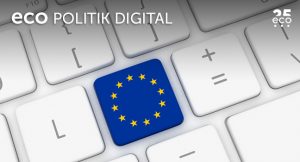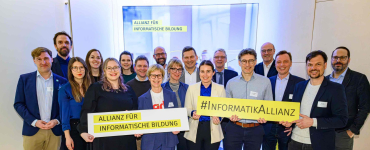“The new Commission is committed to tackling our generational challenges such as climate change, digitalization and migration. We are committed to delivering on the European Green Deal and to improving chances for European citizens and businesses in the digital transformation. This Work Programme will help to build a Union that strives for more.”
With these words, last Wednesday Ursula von der Leyen, President of the European Commission, presented the EU Commission’s Work Programme for 2020. The programme contains measures and political guidelines that the Commission intends to implement in the current year under VDL’s leadership. The first work programme of the new legislative term places a particularly strong focus on ecological and digital change.
If the EU wants to achieve its ambitious digital policy goals – for example in the areas of cybersecurity, AI, digital infrastructures, and 5G technology – the Commission must act decisively and forcefully now. In the view of eco – Association of the Internet Industry, the focus of a modern Internet policy must be on strengthening the common Digital Single Market and advancing its development into an integral part of the European Single Market.
On the basis of a new European Data Strategy, the Union wants to fully harness the massive value of non-personal data, which is increasingly becoming an extensive and reusable resource of the digital economy. According to President von der Leyen, capitalizing upon this includes optimally using digital data and developing and utilizing artificial intelligence, while at the same time respecting our European values and fundamental rights.
The European Commission’s internal document on the planned Data Strategy is already in circulation: Over 26 pages, the Commission outlines its strategy for the European data economy. However, it is deferring important decisions in the strategy until the end of the year or even until 2021 or 2022.
It is very positive that the Commission has apparently recognized that rigid regulatory approaches serve to knock any innovation on the head. The EU must be “agile” and allow room for experimentation so as not to hinder innovation. Only through the targeted use of digital technologies and innovations can Europe catch up decisively with international competition in the field of digitalization. For a trustworthy handling of AI, the respective algorithms must be of high quality. This can only be achieved through innovative research and development processes that are not held back by over-regulation. A blanket ex-ante regulation must be avoided.
In addition to targeted research and the development of new technologies, policy-makers must also focus on efficient digital infrastructures and promote societal acceptance of AI technologies. A completed European Digital Single Market must be the target scenario here.




